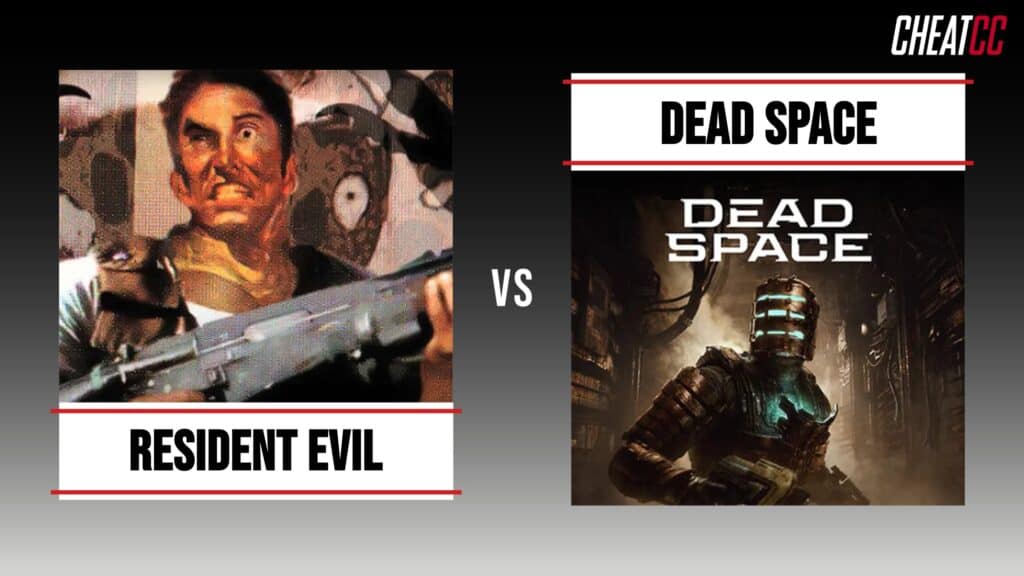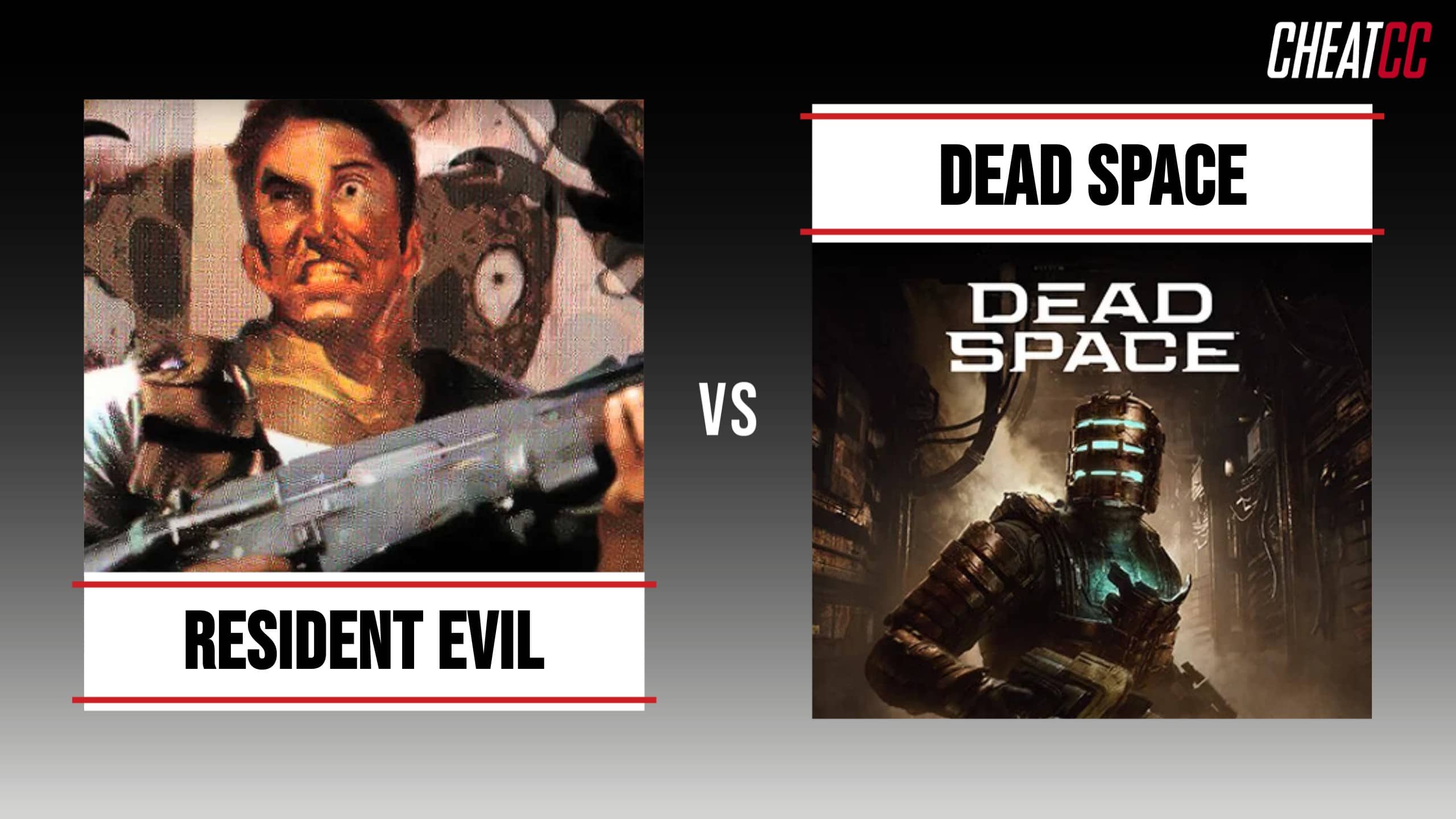After initially birthing the genre with its first entry back in 1996, Resident Evil would again single-handedly come to redefine survival-horror following the release of Resident Evil 4 in 2005. Not only does Resident Evil 4 represent a massive shift in terms of the series’ traditional gameplay, but it would go on to influence nearly every single action game released after it, with its unique over-the-shoulder camera perspective and tense, close-quarters shooting. So profound is the impact of Resident Evil 4 that even its remake would earn several Game of the Year nods. It’s safe to say that, without Resident Evil 4, there would never be Dead Space, making the battle of Resident Evil vs Dead Space the definitive proving ground for the best survival-horror franchise.
Dead Space‘s launch in 2008 would be a welcome surprise for Resident Evil fans as Capcom’s flagship survival-horror series continued to venture further and further into action game territory. In comparison, Dead Space would prove to be firmly entrenched in the horror genre, effectively mixing the best parts of the original Resident Evil games with the gameplay refinements of Resident Evil 4. And, to top it all off, EA’s new survival horror franchise would wrap all of this up in a setting reminiscent of some of the best horror films of all-time. However, when looking at each of these series in a “big picture” context, it’s obvious that one has much greater staying power than the other.
Resident Evil vs Dead Space: Side-by-Side Comparison

Horror fans have no shortage of legendary franchises when it comes to survival-horror games. In addition to the commonly accepted “founding” series Alone in the Dark and Resident Evil, there’s also the Silent Hill, Clock Tower, Fatal Frame, and Amnesia series that continually rank as some of the more enjoyable and terrifying games available. While Dead Space is a comparatively new franchise when stacking up next to those others, it would make an immediate splash upon its arrival and quickly become a fan-favorite thanks to its dread-inducing atmosphere, excellent combat, and compelling lore. Dead Space would end up spawning two sequels and a spin-off before fading into the annals of history, but a recent remake of the original game sees it poised to make a comeback.
| Characteristic | Resident Evil | Dead Space |
|---|---|---|
| Publisher | Capcom | Electronic Arts |
| Developer | Capcom | EA Redwood Shores, EA Motive |
| Original Release Year | 1996 | 2008 |
| Original Release Platform | PlayStation | Xbox 360, PS3, PC |
| Total Number of Games | 30 | 6 |
| Main Protagonists | Jill Valentine, Chris Redfield, Leon S. Kennedy, Claire Redfield | Isaac Clarke |
| Camera Perspective | Third-person | Third-person |
| Review Aggregate Score (Mainline Games) | 87% | 86.5% |
| Total Series Sales | 150 million units | 8 million units |
| Remakes | 4 | 1 |
| Other Adaptations | Comics, Novels, Animation, Film, Television | Comics, Novels, Animation |
Resident Evil vs Dead Space: 5 Must-Know Facts
Here are 5 must-know facts comparing the Resident Evil and Dead Space franchises:
- Thanks to the number of years it’s been around, the Resident Evil franchise has an impressive 30 titles (more if counting region-specific mobile games) across its history, including 8 mainline titles, 4 remakes, and over a dozen spin-offs. In comparison, Dead Space only has 6 total games across original titles, two spin-offs, and a remake.
- The Resident Evil series bases its horror off of the classic films of George Romero, specifically Night of the Living Dead and Dawn of the Dead. Conversely, Dead Space pulls its inspirations from a decidedly more sci-fi-horror pool, with films like Ridley Scott’s Alien and the cult-classic Event Horizon serving as primary influences.
- It’s safe to say that without Resident Evil, Dead Space would not exist. Prior to the launch of Resident Evil, there were other survival-horror games, but the genre would not receive its name and its future template without the original Resident Evil from 1996.
- Both Resident Evil and Dead Space have successful remakes of the series’ classic games that reimagine them for modern consoles while retaining the core gameplay of the originals. The Resident Evil remakes have proven to be so successful that Capcom is continuing to remake other games in the series.
- With 150 million units sold across all titles, the Resident Evil franchise is the most successful horror IP of all-time. Comparatively, Dead Space has only sold a fraction of copies, though the series do share comparable critical reception across their mainline games.
Resident Evil vs Dead Space: Number of Games
The release of Resident Evil on the original PlayStation would prove to be a “lightning in a bottle” moment, with players hungry for newer, more cinematic experiences on the fledgling Sony console. The success of the original game would all but guarantee the continuation of the series in future entries, and the Resident Evil franchise now counts 30 games in its library. There are 8 mainline titles, 4 remakes of key games in the mainline entries, and several spin-offs and side games. The Dead Space series would get off to a strong start in 2008 and quickly release two sequels, but the series’ long hiatus between its third entry and the recent remake of the original game results in the franchise having far fewer games in comparison.
Resident Evil vs Dead Space: Inspirations
The horror of Resident Evil continues to intertwine with action and a B-movie sensibility, which stems from the original’s horror film inspirations. Series creator Shinji Mikami has gone on record before stating his love for the films of George Romero, citing both Night of the Living Dead and Dawn of the Dead as major inspirations for the Resident Evil franchise and its iconic zombie enemies. Similarly, Dead Space creator Glenn Schofield maintains an open dialogue about the films influencing the series’ creation, but they take a decidedly more sci-fi-horror route, pulling from the 1979 classic Alien and more modern horror films like Paul W.S. Anderson’s Event Horizon. In a strange coincidence, it’s none other than Paul W.S. Anderson who would helm the Resident Evil film franchise.
Resident Evil vs Dead Space: Defining a Genre
Though the Dead Space games are excellent survival-horror titles that borrow some of the best elements of the games that come before, the franchise owes its existence to Resident Evil. Essentially, Resident Evil 4 would need to walk so that Dead Space could run. So much of Dead Space‘s gameplay pays homage to the mechanics of Resident Evil 4, albeit with a greater focus on limb dismemberment rather than headshots. Taken as a whole, the Resident Evil franchise is one of the most important and iconic series in all of gaming, responsible for helping to define what players now know as “survival-horror”, regardless of whether there were earlier, more prototypical games that came before.
Resident Evil vs Dead Space: Remakes & Series Futures
For the first time in many years, the futures of both Resident Evil and Dead Space are wide open. Following the less-than-stellar reception to Resident Evil 6, the franchise would go back to the drawing board only to come out of the gate swinging with one of the best games in the series in Resident Evil 7: Biohazard. Since then, Capcom has continued to move forward with a new strategy where they alternate releases between new mainline entries and remakes of classic games in the franchise. Since adopting this new release schedule, the Resident Evil franchise has experienced a resurgence in popularity and is arguably in the best spot it’s been in since its first 10 years as a series.
Dead Space would take a bit of a different route, with the series having an incredible second entry and then following it up with one of the most divisive survival-horror games ever in Dead Space 3. Following the diminishing returns on the series’ sequels, EA would bench the franchise for a decade before eventually reviving it in the form of last year’s remake of the original game, also called Dead Space. The remake’s success of selling 2 million copies in a relatively short amount of time all but guarantees that EA will continue to move forward with making games within the franchise, but whether those games are more remakes or new original titles remains to be seen.
Bottom Line
Though nearly every survival-horror game owes some debt of gratitude to Resident Evil, they each tend to have aspects that separate them from the genre’s forebear. Dead Space is an excellent series in its own right and a near-perfect amalgamation of science-fiction and horror, even if it does borrow heavily from Resident Evil 4. That said, there’s no denying that the Resident Evil franchise is perhaps one of the most important pillars of the gaming industry, right alongside the medium’s mainstays like The Legend of Zelda, Super Mario Bros., Final Fantasy, and Grand Theft Auto. The success (both critical and commercial) of the Resident Evil series, nearly 30 years of franchise history, and its innovations to the genre both large and small combine to make Resident Evil the definitive survival-horror series.
